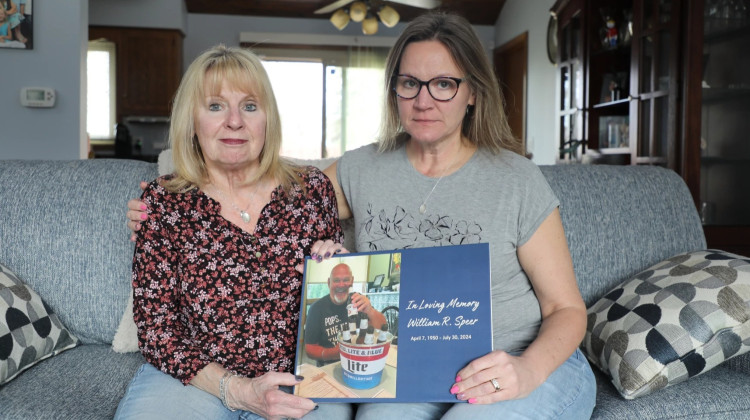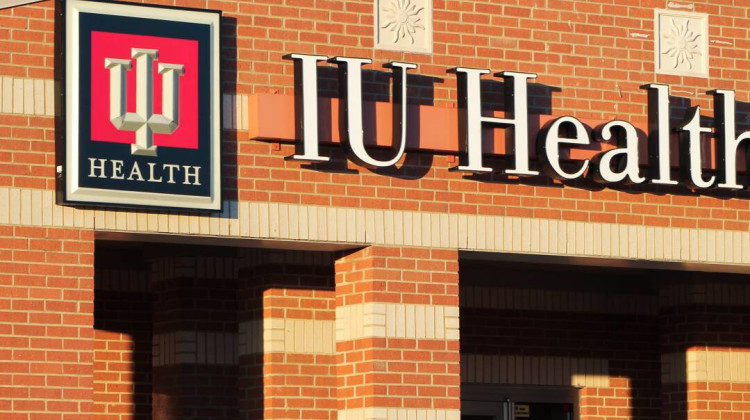
Beverly Lewis tells her story at the graduation for Industrious Labs' Sustainable Steel Community Cohort earlier this month.
Courtesy of Industrious LabsA cohort of 16 northwest Indiana residents hope to bring cleaner steel to the Region. According to the Environmental Protection Agency, U.S. Steel and Cleveland Cliffs are in the top 10 for greenhouse gas emissions in the state and toxic releases from industrial facilities.
The nonprofit Industrious Labs aims to decarbonize heavy industry. Over the past five months, the group taught residents all about steel — the way it's made today, technology that could make it greener and the health risks of living near a steel plant. That includes lung and heart problems and certain cancers.
It’s something Gary resident Beverly Lewis knows all too well. Her youngest brother died from an asthma attack when he was just 12 years old.
“As most boys are, he was precocious and loved to explore outdoors — all of the things that would have exacerbated his asthma," Beverly Lewis said.
Beverly Lewis herself suffers from asthma and allergies and so do her daughters. Her mom was also diagnosed with Stage 4 breast cancer — though she's is unsure if pollution from the steel mills contributed to that.
She said many residents have mixed feelings about the area's steel mills. They've helped put food on the table for a lot of people. Her father worked at a steel plant and some of her relatives still do today.
But automation and other factors have significantly reduced the number of jobs at steel plants today and the health impacts of living next to coal-based steel and coke plants shouldn't be ignored.
Industrious Labs recently released a report, mostly based on EPA data. It shows steel and coke plants cause more than 400 premature deaths and emergency room visits for respiratory issues as well as more than 52,000 missed school days and 45,000 lost work days.
Join the conversation and sign up for the Indiana Two-Way. Text "Indiana" to 765-275-1120. Your comments and questions in response to our weekly text help us find the answers you need on climate solutions and climate change at ipbs.org/climatequestions.
The group estimates the plants are responsible for up to $13 billion in health care costs every year and $137 million in lost school and work days.
Industrious Labs’ steel director Hilary Lewis hopes that hearing from people living near these steel plants will help the steel industry transition to a cleaner process. Both U.S. Steel and Cleveland Cliffs — two of the state’s top polluters — have plans to extend the life of their coal-based blast furnaces through processes like relining.
“So I think there's a big opportunity — particularly because of the two proposed relines — to elevate the issue of coal-based steel with the Environmental Protection Agency. And say that, you know, this does not need to continue in this way. There are cleaner alternatives out there and the community is asking for new investments," Hilary Lewis said.
Industrious Labs and other environmental groups would like to see steel plants use direct reduced iron and electric arc furnaces as well as power plants with renewable energy.
The EPA was unable to provide an interview in time for publication, but said it would review the report.
Rebecca is our energy and environment reporter. Contact her at rthiele@iu.edu or follow her on Twitter at @beckythiele.
 DONATE
DONATE






 Support WFYI. We can't do it without you.
Support WFYI. We can't do it without you.